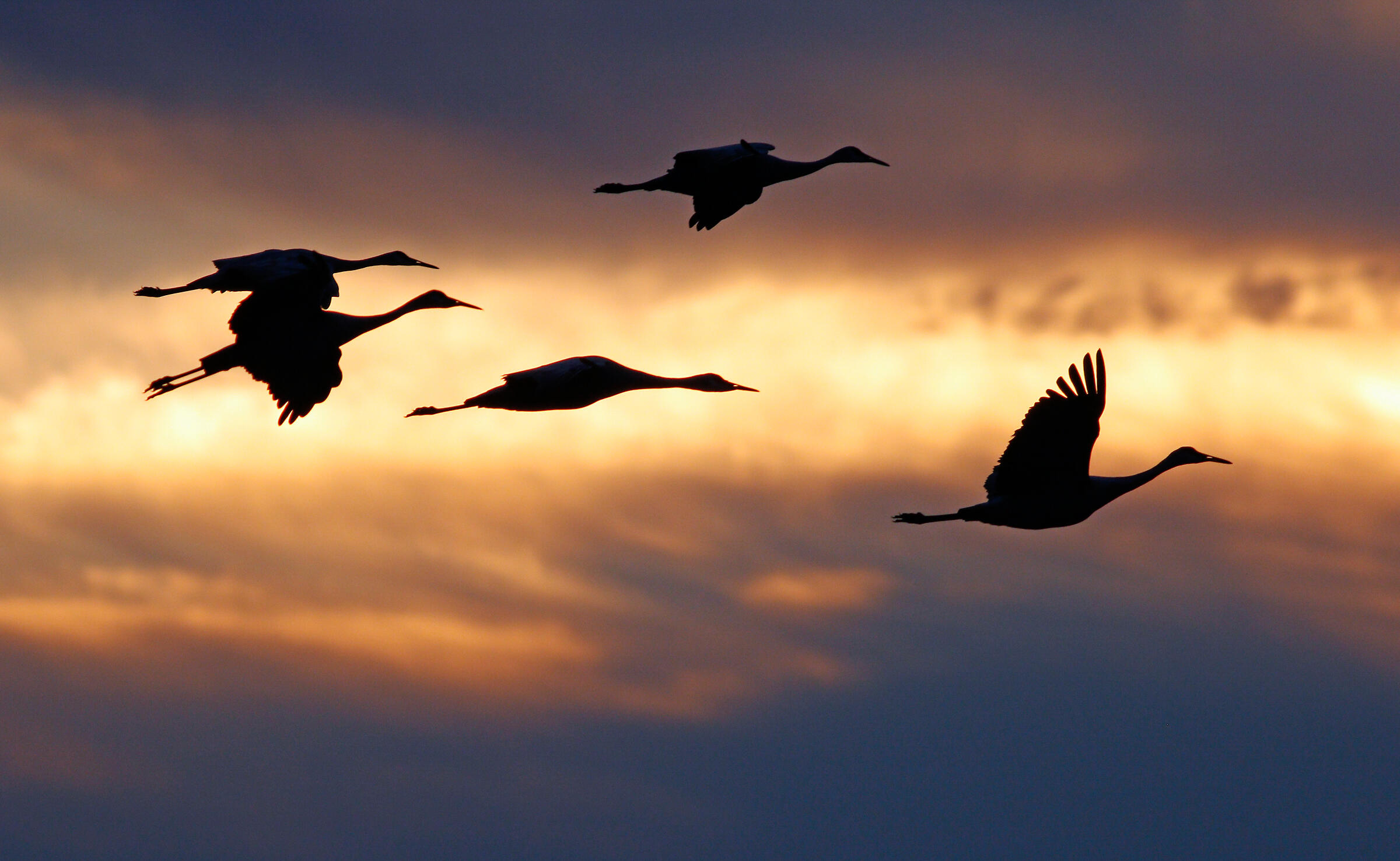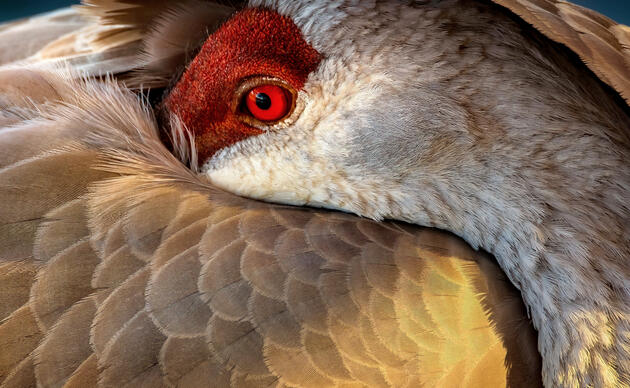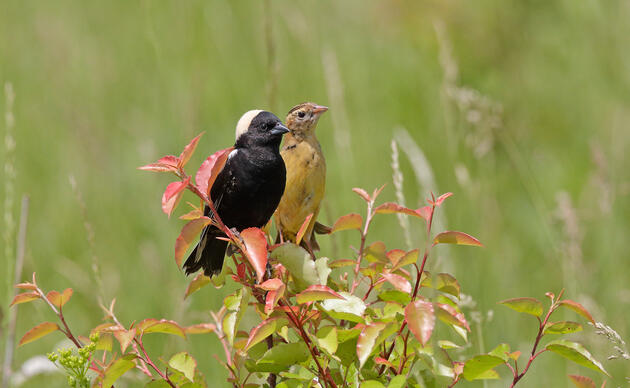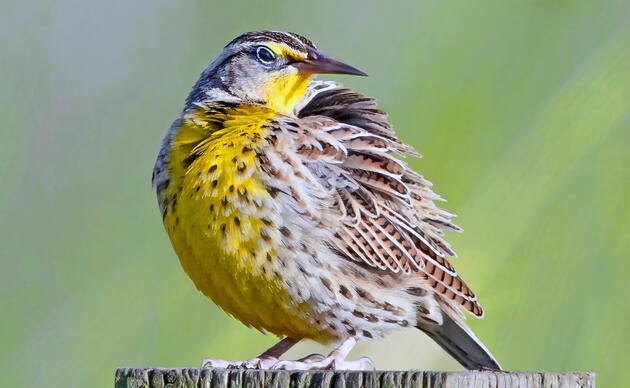Every year, millions of birds migrate across the Great Plains, often flying thousands of miles! From Sandhill Cranes, ducks, and geese, to songbirds, like the Black-and-white warbler, the prairies, wetlands, and woodlands of the Great Plains provide critical habitat for birds to rest, refuel, and seek shelter. Many of these birds, some weighing as little as an ounce, make their remarkable bi-annual migration at night, all while using the earth's magnetic field, moon, and stars to navigate their journey. By dimming non-essential lighting during peak spring and fall migration, we can help birds make it to their destinations safely.
The Problem
Most birds migrate at night. Every spring and fall, birds soar across the Great Plains in large flocks, filling the night sky with a superhighway of birds!
When migrating birds fly over brightly lit homes and buildings, the skyglow (light pollution) drowns out the stars, confusing and disorienting them into urban areas. Once trapped among windowed cities, birds either hit buildings directly or circle them until they collapse from exhaustion. Sadly, up to one billion birds are lost to collision every year across North America.
What You Can Do At Home
Lights Out participation helps to dramatically reduce collisions and terminal exhaustion, protecting our feathered friends. Community members and building managers can help migratory birds with these simple tips:
- Turn off non-essential lights
- Turn off or dim lobby and atrium lights
- Turn off or dim interior home lighting
- Turn off lights before leaving the home or office
- Draw blinds and close curtains
- Ensure outside lights are aimed down and well shielded
- Install motion sensors on outside lights to minimize use
- Share our message with family and friends, using hashtag #LightsOutforBirds
Reaching out to local elected officials or building managers can help raise awareness of the risk artificial light at night poses to birds and can spur them to action! Below are templates you can use to create your own letters to use in your local community.
Download our Lights Out Badge today! Add it to your website and email signatures to show your support! When to Turn Off Lights
Turning Lights Out for Birds will help reduce migratory birds from becoming confused, disoriented, and colliding with buildings. Help birds make it to their destination safely by pledging to turn off non-essential lights from midnight to dawn during Lights Out for Birds dates:
- Fall Migration: August 15 to November 15
- Spring Migration: March 15 to May 31
Additional Lights Out Resources
More Ways to Help Birds
1. Adopt Bird-friendly Features:
- Bird-Friendly Building Design from American Bird Conservancy
- Best Practices for Bird-Friendly Glass
- Best Practices for Effective Lighting from the City of Toronto
2. Bird Feeder Placement Tip:
To avoid window collisions, make sure to place bird feeders within 3 feet or further than 10 feet from windows.
3. Keep Cats Indoors:
Domestic and feral cats are the number-one direct threat to birds. They are responsible for an estimated 2.4 billion bird deaths annually. Keeping cats indoors prevents them from attacking birds and other small animals.
How you can help, right now
Support Rowe Sanctuary
Help us continue our important work for Sandhill Cranes and other birds that rely on the Platte River ecosystem!
Support Spring Creek Prairie
We are able to provide and protect this amazing landscape only with the help of private donations. Help us keep the trails open and the prairie thriving!
Support Audubon in the Great Plains
Support our work with local landowners, urban woods and prairies, and education programs in Nebraska and the Dakotas!




